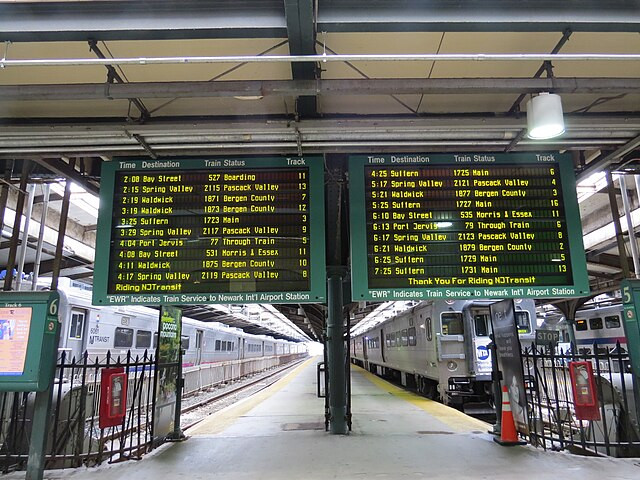Engineers at NJ Transit walked off the job early Friday, halting all commuter rail service for one of the nation's busiest transit systems and stranding hundreds of thousands of riders across the New York-New Jersey region. The strike, NJ Transit's first in over four decades, follows a breakdown in negotiations with the Brotherhood of Locomotive Engineers and Trainmen (BLET) after 15 hours of contract talks failed to produce a deal.
The stoppage is expected to impact nearly 350,000 daily riders, including 100,000 rail commuters, with ripple effects on Manhattan-bound traffic, airport access, and weekend events like Shakira's MetLife Stadium concert. NJ Transit CEO Kris Kolluri said negotiations ended around 10 p.m. Thursday, describing the outcome as a "pause in the conversations." New Jersey Gov. Phil Murphy joined Kolluri at a late-night press conference, urging commuters to work from home and warning that bus alternatives would cover only a fraction of rail capacity.
"If you can work from home, certainly tomorrow (Friday) ... would be a really good day to do so," Murphy said. "The workers and families who rely on our transit system every single day are the backbone of our entire economy."
Picket line at Penn Station. This is the Brotherhood of Locomotive Engineers. On strike since midnight. No NJT @NJTRANSIT rail service today. #NBC4NY pic.twitter.com/YjnTfPHhV5 — Andrew Siff (@andrewsiff4NY) May 16, 2025
At the heart of the impasse is a wage dispute. The union says its engineers, who currently earn about $113,000 annually on average, deserve parity with counterparts at Amtrak and other regional lines. The union is pushing for wages around $170,000. NJ Transit counters that average engineer earnings already exceed $135,000 and argues that agreeing to the union's demand would trigger "me too" clauses, potentially increasing costs by over $100 million per year.
"I told them I respect the offer they put on the table," Kolluri said Friday morning. "Where we could not bridge the gap is this 'me too' clause."
BLET General Chairman Thomas Haas told NJ Transit's board this week: "We, the locomotive engineers of NJ Transit are asking only for a fair and competitive wage. The last thing we want to see is that (service) to be interrupted. But we're at the end of our rope."
The strike follows union members' rejection of a previous tentative agreement by 87%. That deal included raises and back pay but fell short of parity with Amtrak, Long Island Railroad, SEPTA, and Metro-North. The BLET says its contract proposal would cost $4 million more annually than NJ Transit's offer but argues that a prolonged strike will cost the agency even more.
"If NJ Transit agreed to BLET's demand, it would have to offer the same pay raises to other unions," Murphy said, emphasizing the financial constraints facing the agency.
Kolluri emphasized the strike wasn't the end of negotiations, stating, "This is not a lost cause. This is an imminently achievable deal."
But Murphy blamed the union for the breakdown. "It is a frankly of mess of their own making, and it is a slap in the face of every commuter and worker who relies on NJ Transit," he said Friday.
BLET President Mark Wallace pushed back, saying NJ Transit negotiators walked away with two hours remaining in talks. "I felt like we were having some positive movement, and at 9:50, they chose to walk away," Wallace told CNN. He also cited the cost of NJ Transit's new headquarters as evidence that the agency can afford the raises.
The strike has immediate implications for upcoming events. Transit service for Shakira's concerts was canceled Thursday and Friday, and Beyoncé's five-show residency at MetLife starting next week could face similar disruptions if the work stoppage continues.
Congress has the authority to force a resolution under the Railway Labor Act, but lawmakers have shown no sign of intervening as they did in 2022 to avert a nationwide freight rail strike. "I hope their stance is they're going to stay out of our fight," Wallace said.




